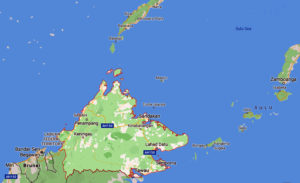MANILA, Philippines — Instead of putting up for sale the country’s four war reparation properties in Japan to raise money for the fight against COVID-19, Foreign Secretary Teodoro Locsin Jr. suggested instead that the government sell as slaves “corrupt and incompetent health officials.”
“To raise funds to fight COVID, don’t sell Japan properties. Sell corrupt and incompetent health officials in the slave markets of North Africa. Although nearly worthless if we sell them all we’ll raise a bit. I think,” Locsin said in a series of tweets on Tuesday.
“Sell the authors of the bill,” he added, referring to House Bill 1921 that identified the sale of the Roponggi and Nampeidai properties in Tokyo and the Noniwacho and Obanoyama properties in Kobe as a source of funds to address the health and economic fallout due to COVID-19.
The Department of Foreign Affairs (DFA) earlier sent a position paper to Congress opposing the sale of these properties and invoking the Supreme Court’s Feb. 20, 1990 decision.
Since the ruling had declared the lots as “properties of public dominion, thus outside the commerce of man,” there were legal restrictions for their lease, development or use, the DFA said.
“I will never agree to the sale of our properties in Japan for any reason. Sell the properties of the departments of budget, treasury [and] health above all for its lousy response to COVID,” Locsin said. According to him, there were other departments with “many idle” properties that could be sold.
“Imagine selling our Japan properties to fund the programs of [the Department of Health]? Rob PhilHealth some more instead. They’re good at that. Sell San Lazaro. Sell RITM,” Locsin went on.
He was referring to San Lazaro Hospital and the Research Institute for Tropical Medicine, both government hospitals.
Locsin’s tweets were apparently in reaction to President Duterte’s announcement late Monday that he was willing to offer for sale the country’s properties in Japan. In a briefing on Tuesday, presidential spokesman Harry Roque clarified that this was “just a suggestion.”
The Philippine government acquired the four properties in Tokyo and Kobe under the war reparation agreement with Japan on May 9, 1956.
The most prized of them is the Roppongi property in Tokyo, one of the prime real estates in the crowded capital city.
The 3,179-square meter lot at 306 Roppongi St. in 5-Chome Minato-ku, Tokyo has survived several attempts to be disposed of either by sale or long-term lease.


